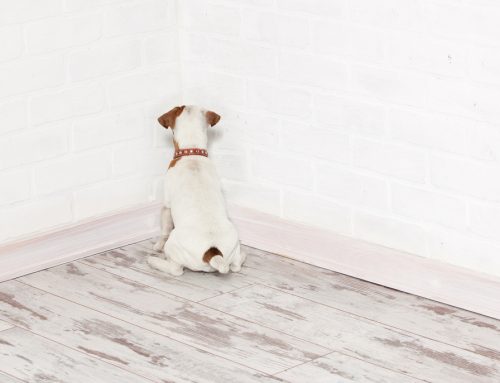Senior pets make wonderful companions, but they require additional care and attention to ensure their needs are met. Our Billings Animal Family Hospital team knows how much your senior pet means to you, and we offer tips to support your four-legged friend in their golden years to ensure they remain happy, healthy, and comfortable for as long as possible.
#1: Recognize that your pet has reached their senior years
Pets age at a more dramatic rate than humans because their projected life span is much shorter, and many owners are surprised to learn their pet has reached senior status. Cats and small-breed dogs are usually considered senior at about 10 years of age, medium-size dogs at about 8 years, large-breed dogs at about 7 years, and giant-breed dogs at about 6 years.
#2: Schedule biannual wellness visits for your senior pet
Senior pets are at increased risk for health complications, such as heart disease, kidney dysfunction, metabolic issues, cataracts, cancer, and arthritis, and they need more frequent screening tests to detect conditions in their early stages when they are easier to manage. Pets often hide illness and pain, and these tests are important to ensure your senior pet receives appropriate care to address potential health issues. If your pet has a known medical issue, our team may recommend more frequent wellness visits, but in general, senior pets should be seen at least every six months by a veterinary professional.
#3: Keep your senior pet at a healthy weight
You may want to spoil your senior pet by giving them more treats and food, but this can be harmful to their health. Carrying excess weight increases your senior pet’s risk of several health issues, such as diabetes, arthritis, hypertension, and urinary tract disease, and negatively affects their quality of life. Tips to keep your senior pet at a healthy weight include:
- Feeding them an appropriate diet — Senior pets tend to be less active and require fewer calories than young pets. When your pet reaches senior status, switch them to an appropriate diet to provide the nutrients they need without adding excess calories.
- Measuring their meal portion properly — Calculate your senior pet’s daily caloric needs considering their age, weight, body condition score, activity level, and spay or neuter status, and use a measuring cup or kitchen scale to accurately measure their meal portion to ensure they receive the correct amount.
- Limiting treats — Limit your senior pet’s treats to no more than 10% of their daily calories, and choose healthy options, such as baby carrots, snap peas, and cucumbers.
#4: Make your senior pet’s dental care a priority
Dental disease is prevalent in cats and dogs, especially seniors, and the condition can lead to painful, bleeding gums, loose and missing teeth, and tooth root abscesses. In addition, the harmful bacteria can enter your pet’s bloodstream, causing damage to their kidneys, heart, and liver. Make your senior pet’s dental care a priority to prevent complications. Tips include:
- Scheduling regular professional veterinary dental cleanings — A professional veterinary dental cleaning is the only way to remove harmful bacteria from under your pet’s gums. Ask our team how often your senior pet’s teeth should be cleaned.
- Brushing your senior pet’s teeth — Plaque and tartar accumulate on your pet’s teeth between professional cleanings, and you should brush their teeth to help promote their oral health. Use pet-friendly toothpaste since human products can be toxic to pets and a soft-bristled toothbrush to avoid irritating their gums.
#5: Keep your senior pet physically active
Keeping your senior pet physically active is important for their physical and mental health. Daily exercise helps strengthen their muscles, improves joint mobility, and engages their mind. While your senior pet may not be up to running 5 miles with you, a brisk walk around the neighborhood or a game of catch the laser dot should help keep them active and limber. Daily exercise also is recommended to help prevent cognitive dysfunction, a condition similar to Alzheimer’s disease in humans.
#6: Monitor your senior pet for discomfort
Arthritis is common in senior pets, but when recognized, the condition can be managed to help improve your pet’s mobility and comfort level. Potential signs you may notice include:
- Stiffness after resting
- Difficulty navigating stairs
- Hesitating when jumping on or off elevated surfaces or making false starts before jumping
- Sleeping more frequently
- Reduced interest in activities
- Choosing more easily accessible areas to rest
- Eliminating outside the litter box
- Resting in awkward positions
If your senior pet is affected by arthritis, our Billings Animal Family Hospital team will devise an effective management strategy to alleviate their joint pain. Potential treatments include pain medication, laser therapy, acupuncture, and joint supplements.
#7: Cater to your senior pet’s needs

You can make changes to your home to help your senior pet if they have senior-related issues such as impaired vision, cognitive dysfunction, or arthritis. Recommendations include:
- Providing assistance — Place ramps or stairs next to your pet’s preferred elevated resting place so they don’t have to jump.
- Leaving the light on — At night, leave the light on so your senior pet can more easily navigate their environment.
- Avoiding moving your furniture — Moving your furniture can be disruptive for pets who have impaired vision or cognitive dysfunction.
- Providing a low-sided litter box — Arthritic cats may have difficulty getting in and out of their litter box, and a low-sided box helps prevent accidents.
Contact our Billings Animal Family Hospital team to schedule your senior pet’s biannual wellness exam so we can help ensure they remain as healthy as possible for as long as possible.





Leave A Comment